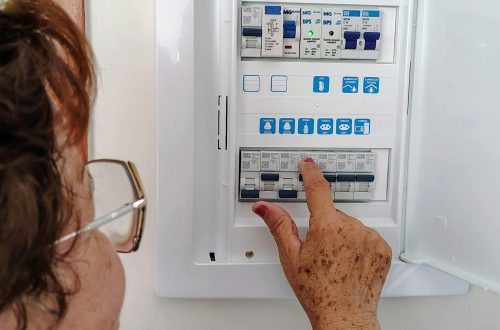Congratulations on becoming a new homeowner! Owning a home is an exciting milestone, but it also comes with responsibilities. Regular maintenance is key to keeping your home in top condition, preventing costly repairs, and ensuring a safe and comfortable living environment. Whether you’re a first-time buyer or just need a refresher, these essential home maintenance tips will help you stay on top of your new investment.
1. Inspect and Maintain Your HVAC System
Your heating, ventilation, and air conditioning (HVAC) system plays a crucial role in keeping your home comfortable year-round. Neglecting it can lead to inefficiency, higher energy bills, or even system failure. Here’s how to keep it running smoothly:
Change Air Filters Regularly
Dirty air filters restrict airflow, forcing your HVAC system to work harder. Replace them every 1-3 months, depending on usage and filter type.
Schedule Annual Professional Maintenance
Hire a licensed technician to inspect and service your HVAC system at least once a year. They’ll clean components, check for leaks, and ensure optimal performance.
Keep Vents and Registers Clean
Vacuum dust and debris from vents to maintain proper airflow. Ensure furniture or curtains aren’t blocking them.
2. Protect Your Plumbing System
Plumbing issues can cause significant damage if left unchecked. Follow these tips to avoid leaks, clogs, and other common problems:
Check for Leaks
Inspect under sinks, around toilets, and near appliances for signs of water damage. Fix small leaks immediately to prevent mold or structural damage.
Clean Drains Regularly
Avoid chemical drain cleaners—they can damage pipes. Instead, use a mixture of baking soda and vinegar followed by hot water to keep drains clear.
Insulate Pipes in Cold Weather
Prevent frozen pipes in winter by insulating exposed pipes in basements, attics, or crawl spaces. Let faucets drip during extreme cold to relieve pressure.
3. Keep Your Roof and Gutters in Good Condition
Your roof and gutters protect your home from water damage. Regular maintenance can extend their lifespan and prevent costly repairs:
Clean Gutters Twice a Year
Clogged gutters can lead to water damage or foundation issues. Remove leaves and debris in spring and fall to ensure proper drainage.
Inspect Your Roof Annually
Look for missing, cracked, or curling shingles. Check for signs of leaks in your attic after heavy rain.
Trim Overhanging Branches
Tree limbs can damage your roof during storms. Keep branches trimmed back to prevent debris buildup and reduce the risk of falling limbs.
4. Maintain Your Home’s Exterior
The outside of your home needs attention too. Proper exterior maintenance improves curb appeal and prevents long-term damage:
Seal Gaps and Cracks
Inspect your home’s foundation, windows, and doors for gaps. Seal them with caulk or weatherstripping to improve energy efficiency and keep pests out.
Power Wash Siding and Walkways
Dirt, mold, and mildew can accumulate on exterior surfaces. Use a power washer (or hire a professional) to clean siding, driveways, and decks annually.
Check and Repair Driveways
Small cracks in asphalt or concrete can expand over time. Fill cracks with sealant to prevent further damage.
5. Test Safety Devices Regularly
Your home’s safety devices are your first line of defense in emergencies. Ensure they’re always in working order:
Smoke and Carbon Monoxide Detectors
Test detectors monthly and replace batteries at least once a year. Replace units every 7-10 years, as sensors degrade over time.
Fire Extinguishers
Keep one in the kitchen and check the pressure gauge annually. Replace or recharge if needed.
GFCI Outlets
Test ground fault circuit interrupter (GFCI) outlets in kitchens, bathrooms, and outdoor areas monthly. Press the “test” button to ensure they trip correctly.
Owning a home is a rewarding experience, but it requires consistent care to stay in great shape. By following these essential maintenance tips, you’ll protect your investment, avoid costly repairs, and enjoy a safe, comfortable living space for years to come. Set a schedule for regular checks, and don’t hesitate to call professionals when needed—prevention is always better than cure!






